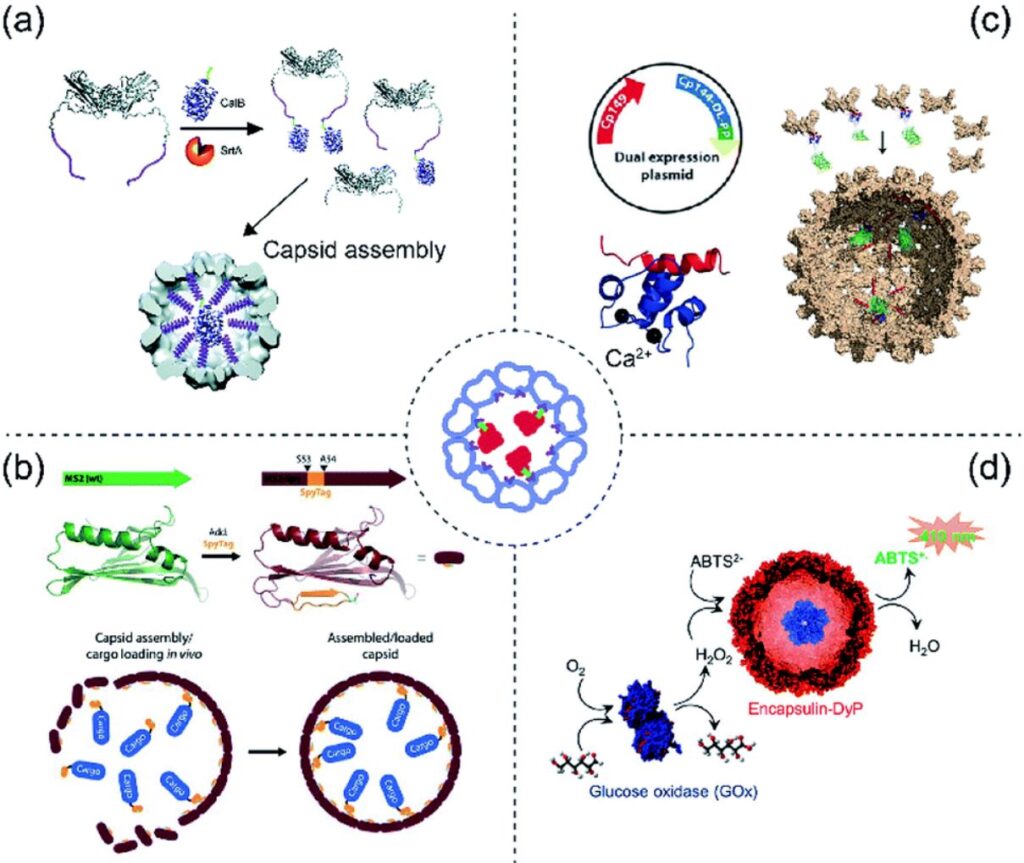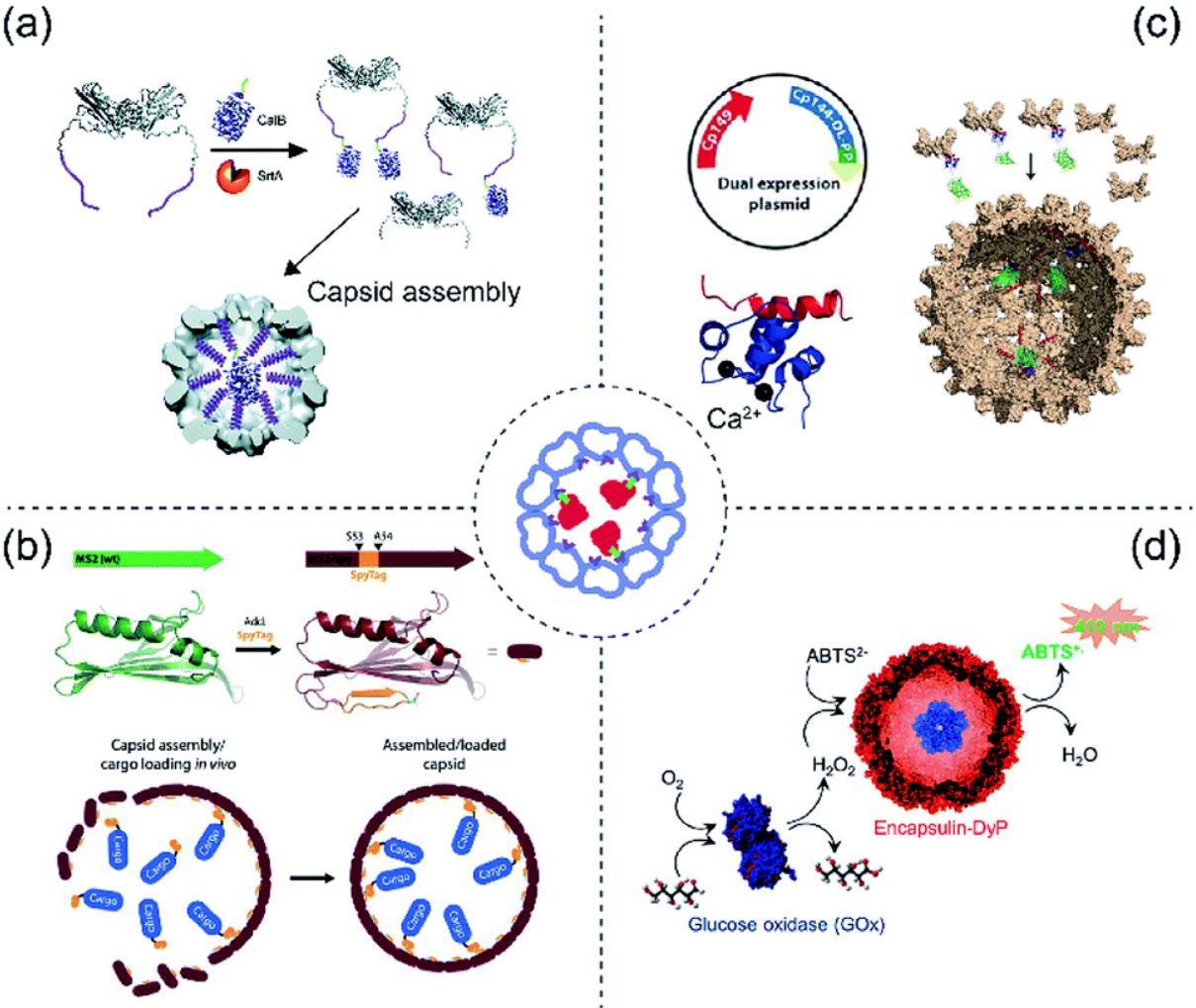Dr. Ting-Yu Lin and dr. Sebastian Glatt with cooperation with the Bionanoscience and Biochemistry Lab publish a interesting review on enzyme encapsulation by nanoscale protein cages.
Containers serve essential purposes in our daily life, such as preserving or storing food or packaging up items for sending in the mail. This idea is now being applied at the nanoscale using tiny protein “cages”. Some potentially useful therapeutics are proteins such as enzymes which typically are difficult to deliver to the areas of the body where they can help treat a disease. Other enzymes may be useful in industrial process but are not stable enough to be stored or used in the required conditions. Recently, protein cages have shown promise in addressing these challenges. These cages are hollow, stable protein spheres usually just a few tens of nanometres in diameter and are typically derived from virus particles and bacterial compartments. They can be filled with enzymes which they protect and/or deliver to where they are needed. A recent mini review led by Soumyananda Chakraborti and Ting-Yu Lin from the Bionanoscience and Biochemistry Lab and the Max Planck Research Group at Malopolska Centre of Biotechnology focussed on recent findings in the area of functional enzyme encapsulation using natural protein cages and summarised the ideas underlying the current technology in this rising field. The authors expect this will be of use to readers wanting to understand this field or wanting to carry out new research in a similar area.

Figure 2 from the paper – https://pubs.rsc.org/en/content/articlehtml/2020/ra/c9ra10983h
Scheme of protein cargo encapsulation inside protein cages by affinity methods. Centre: Concept of affinity-based cargo encapsulation.
